Rafael Boloix-Tortosa
The Generalized Complex Kernel Least-Mean-Square Algorithm
Feb 22, 2019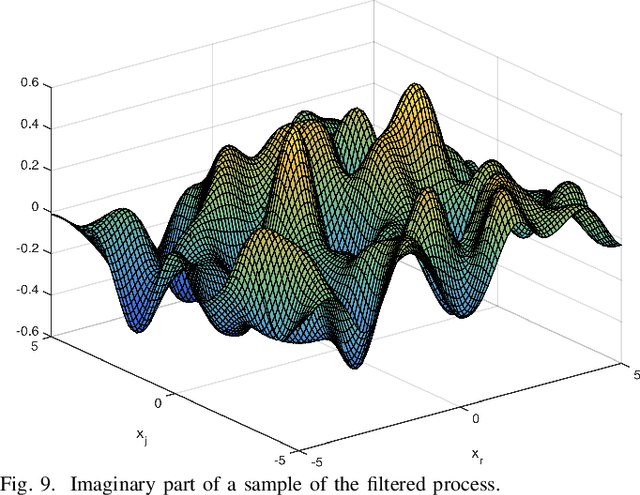
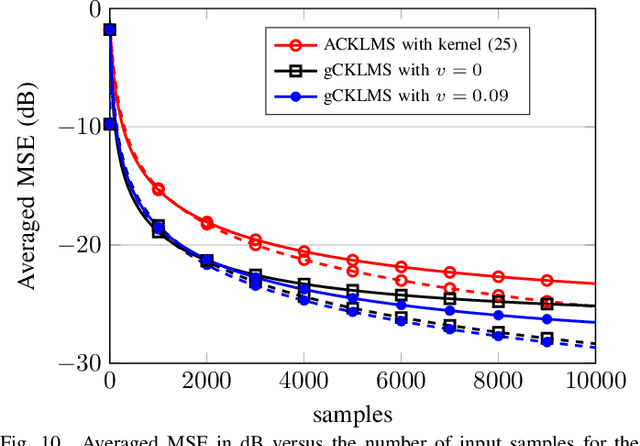
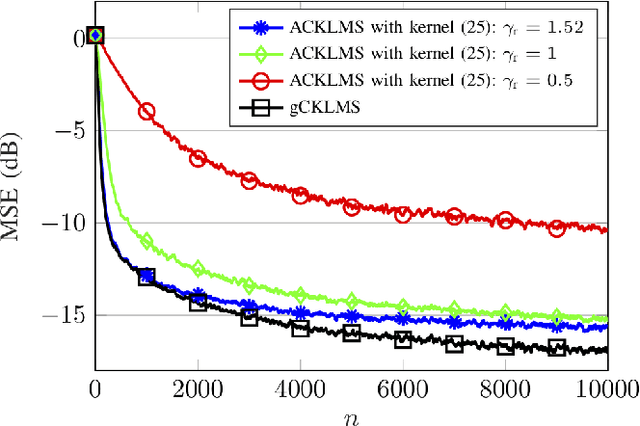
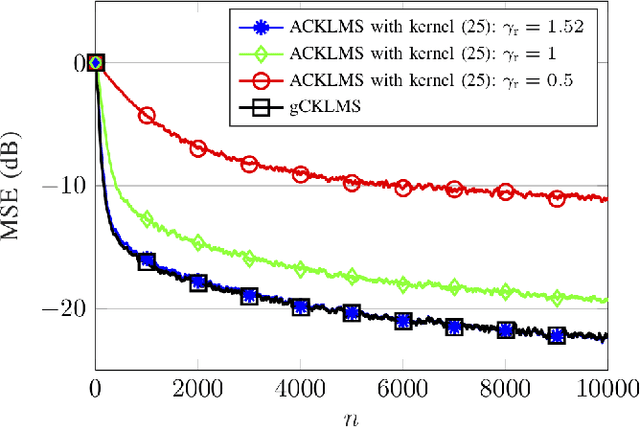
Abstract:We propose a novel adaptive kernel based regression method for complex-valued signals: the generalized complex-valued kernel least-mean-square (gCKLMS). We borrow from the new results on widely linear reproducing kernel Hilbert space (WL-RKHS) for nonlinear regression and complex-valued signals, recently proposed by the authors. This paper shows that in the adaptive version of the kernel regression for complex-valued signals we need to include another kernel term, the so-called pseudo-kernel. This new solution is endowed with better representation capabilities in complex-valued fields, since it can efficiently decouple the learning of the real and the imaginary part. Also, we review previous realizations of the complex KLMS algorithm and its augmented version to prove that they can be rewritten as particular cases of the gCKLMS. Furthermore, important conclusions on the kernels design are drawn that help to greatly improve the convergence of the algorithms. In the experiments, we revisit the nonlinear channel equalization problem to highlight the better convergence of the gCKLMS compared to previous solutions. Also, the flexibility of the proposed generalized approach is tested in a second experiment with non-independent real and imaginary parts. The results illustrate the significant performance improvements of the gCKLMS approach when the complex-valued signals have different properties for the real and imaginary parts.
Complex-Valued Gaussian Processes for Regression
Feb 28, 2018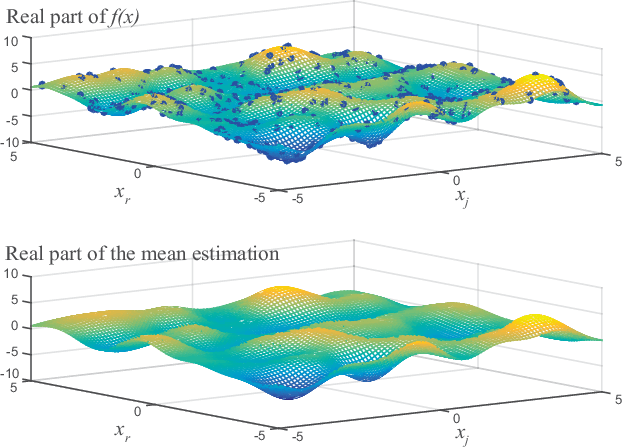
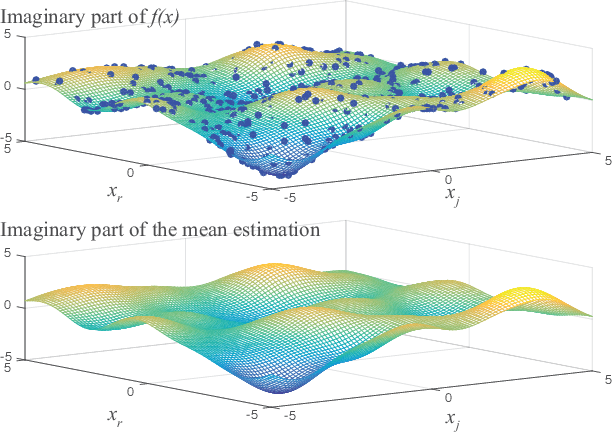
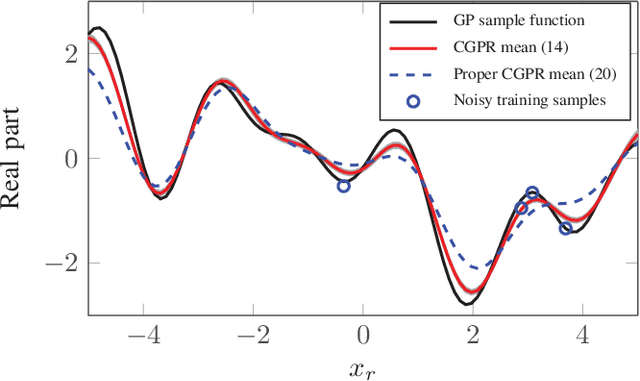
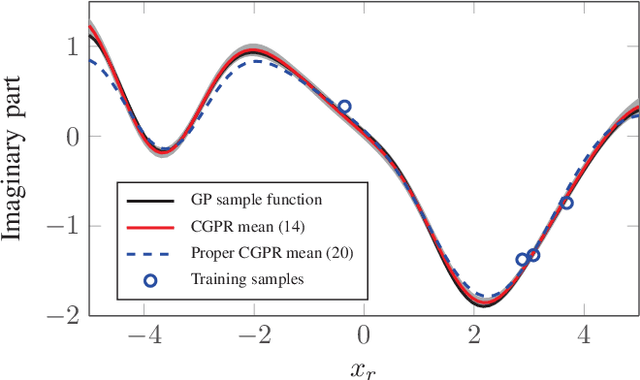
Abstract:In this paper we propose a novel Bayesian solution for nonlinear regression in complex fields. Previous solutions for kernels methods usually assume a complexification approach, where the real-valued kernel is replaced by a complex-valued one. This approach is limited. Based on results in complex-valued linear theory and Gaussian random processes we show that a pseudo-kernel must be included. This is the starting point to develop the new complex-valued formulation for Gaussian process for regression (CGPR). We face the design of the covariance and pseudo-covariance based on a convolution approach and for several scenarios. Just in the particular case where the outputs are proper, the pseudo-kernel cancels. Also, the hyperparameters of the covariance {can be learnt} maximizing the marginal likelihood using Wirtinger's calculus and patterned complex-valued matrix derivatives. In the experiments included, we show how CGPR successfully solve systems where real and imaginary parts are correlated. Besides, we successfully solve the nonlinear channel equalization problem by developing a recursive solution with basis removal. We report remarkable improvements compared to previous solutions: a 2-4 dB reduction of the MSE with {just a quarter} of the training samples used by previous approaches.
* 13 pages, 18 figures
Complex-Valued Kernel Methods for Regression
Oct 31, 2016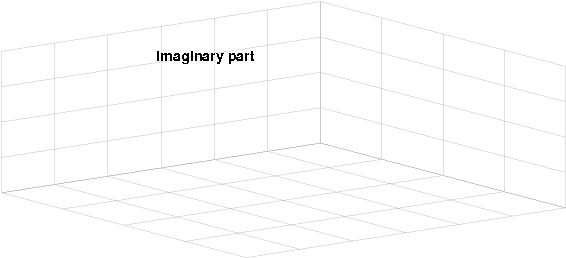
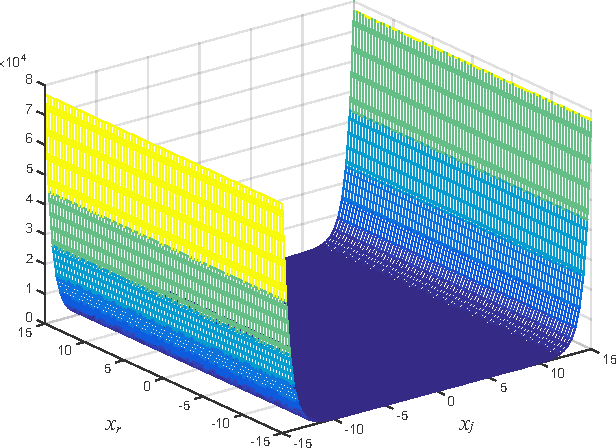
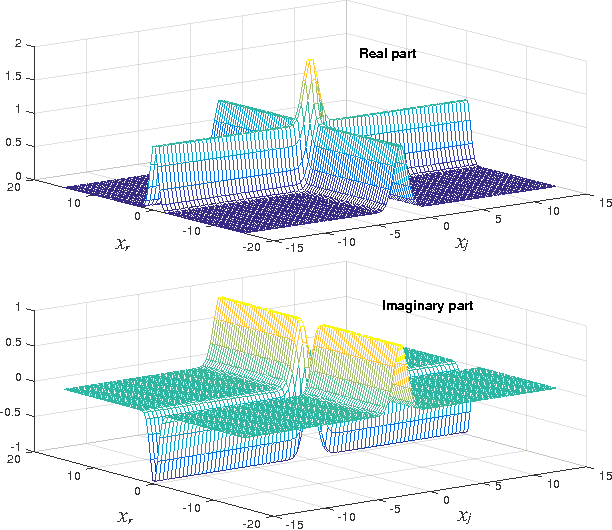
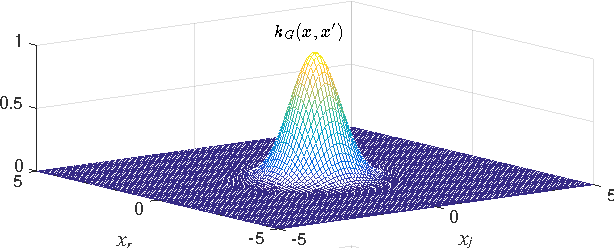
Abstract:Usually, complex-valued RKHS are presented as an straightforward application of the real-valued case. In this paper we prove that this procedure yields a limited solution for regression. We show that another kernel, here denoted as pseudo kernel, is needed to learn any function in complex-valued fields. Accordingly, we derive a novel RKHS to include it, the widely RKHS (WRKHS). When the pseudo-kernel cancels, WRKHS reduces to complex-valued RKHS of previous approaches. We address the kernel and pseudo-kernel design, paying attention to the kernel and the pseudo-kernel being complex-valued. In the experiments included we report remarkable improvements in simple scenarios where real a imaginary parts have different similitude relations for given inputs or cases where real and imaginary parts are correlated. In the context of these novel results we revisit the problem of non-linear channel equalization, to show that the WRKHS helps to design more efficient solutions.
* 8 pages, 9 figures
Proper Complex Gaussian Processes for Regression
Feb 18, 2015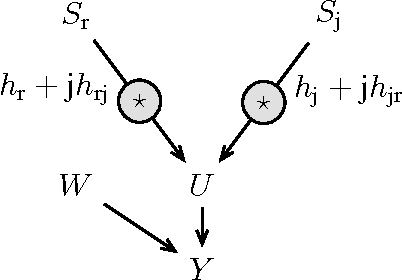
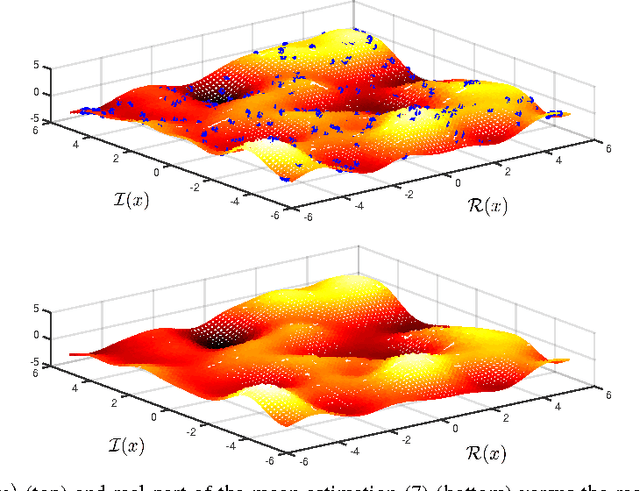
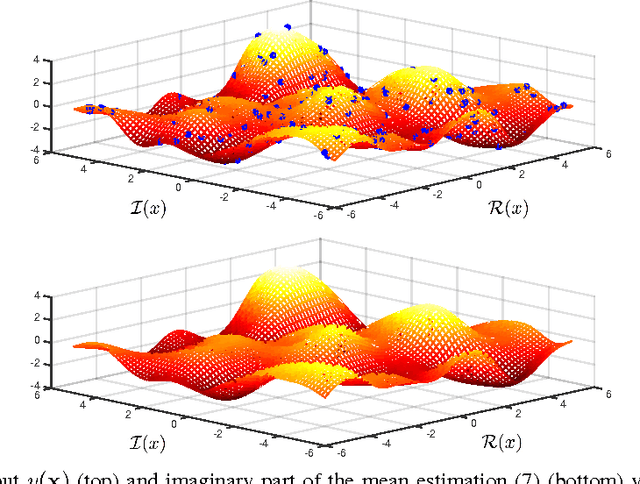
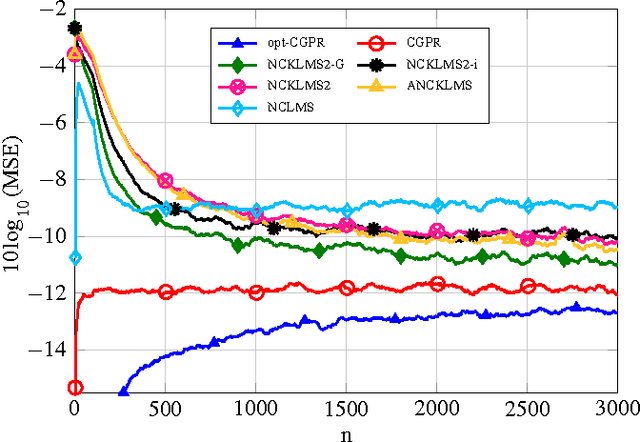
Abstract:Complex-valued signals are used in the modeling of many systems in engineering and science, hence being of fundamental interest. Often, random complex-valued signals are considered to be proper. A proper complex random variable or process is uncorrelated with its complex conjugate. This assumption is a good model of the underlying physics in many problems, and simplifies the computations. While linear processing and neural networks have been widely studied for these signals, the development of complex-valued nonlinear kernel approaches remains an open problem. In this paper we propose Gaussian processes for regression as a framework to develop 1) a solution for proper complex-valued kernel regression and 2) the design of the reproducing kernel for complex-valued inputs, using the convolutional approach for cross-covariances. In this design we pay attention to preserve, in the complex domain, the measure of similarity between near inputs. The hyperparameters of the kernel are learned maximizing the marginal likelihood using Wirtinger derivatives. Besides, the approach is connected to the multiple output learning scenario. In the experiments included, we first solve a proper complex Gaussian process where the cross-covariance does not cancel, a challenging scenario when dealing with proper complex signals. Then we successfully use these novel results to solve some problems previously proposed in the literature as benchmarks, reporting a remarkable improvement in the estimation error.
 Add to Chrome
Add to Chrome Add to Firefox
Add to Firefox Add to Edge
Add to Edge